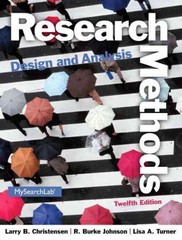1.) Absolute poverty refers to ... A. standards of consumption which are considered necessary to maintain 'decency.' B. some having just enough income to eat
1.) Absolute poverty refers to ...
A. standards of consumption which are considered necessary to maintain 'decency.'
B. some having just enough income to eat sufficiently and clothe themselves but lack access to things like education and health care.
C. weighing each poor person by the distance they fall short of the poverty line.
D. the failure to be in command over income to fulfil the most basic human needs for survival - such as nutrition, clothing and shelter.
2.) Intersectionality refers to ...
A.the sectoral balances macroeconomic framework relied upon by some Post Keynesians.
B. multiple, overlapping systems of oppression - i.e., an analysis claiming that systems of race, social class, gender, sexuality, ethnicity, nation, and age form mutually constructing features of social organization.
C. crossing disciplinary boundaries, including different schools of economic thought.
D. some having just enough income to eat sufficiently and clothe themselves but lacking access to things like education and health care.
3.) Austerity refers to ...
A. a balanced budget doctrine where an anti-deficit bias argues for cuts to government spending and support, often cutting back on social welfare programs and government services.
B. expanding the money supply to help businesses invest in increasing productive capacity.
C. businesses pulling back on investment and an increase in government spending.
D. a radical Post Keynesian policy of socializing investment to avert a recession.
4.) "Functional finance" refers to ...
A. a balanced budget doctrine where an anti-deficit bias argues for cuts to government spending and support, often cutting back on social welfare programs and government services.
B. expanding the money supply to help businesses invest in increasing productive capacity.
C. businesses pulling back on investment and an increase in government spending.
D. a radical Post Keynesian policy of conducting fiscal and monetary policies based on the desired effects of the policies.
5.) The "social construction" thesis - or, the social construction of race - refers to ...
A. race being a category that society invents, manipulates, or retires when convenient.
B. race and races not being objective, inherent, or fixed, instead corresponding to no biological or genetic reality.
C. race and races being products of social thought and relations.
D. All of the above.
Step by Step Solution
There are 3 Steps involved in it
Step: 1

See step-by-step solutions with expert insights and AI powered tools for academic success
Step: 2

Step: 3

Ace Your Homework with AI
Get the answers you need in no time with our AI-driven, step-by-step assistance
Get Started


